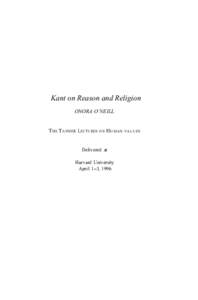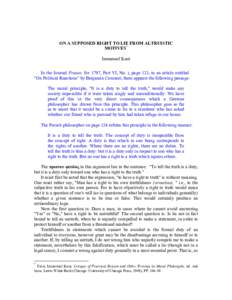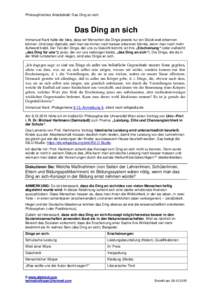<--- Back to Details
| First Page | Document Content | |
|---|---|---|
 Date: 2013-04-24 13:44:58Enlightenment philosophy Epistemology Continental philosophers German idealism Critique of Pure Reason Philosophy of logic Immanuel Kant Critique of Judgment Critique of Practical Reason Reason Practical reason Noumenon |
Add to Reading List |
 Kant on Reason and Religion ONORA O’NEILL T HE T ANNER L ECTURES O N H UMAN V A L U E S Delivered at Harvard University April 1-3, 1996
Kant on Reason and Religion ONORA O’NEILL T HE T ANNER L ECTURES O N H UMAN V A L U E S Delivered at Harvard University April 1-3, 1996


